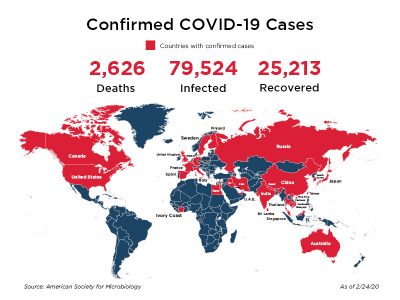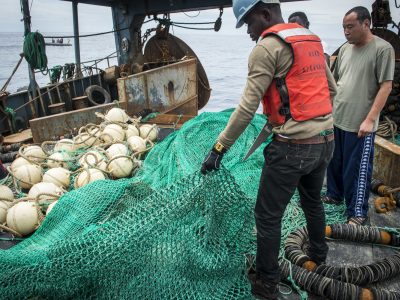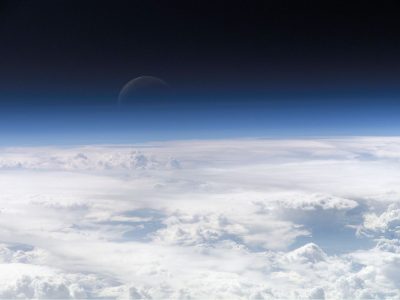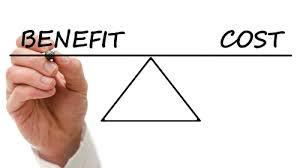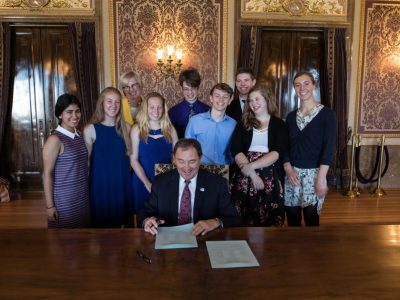Virus Denial
Yet another effort to ignore reality, from the usual players.
We’ve seen this movie before. Scientists warn of a serious threat. But in Trump World, the problem doesn’t exist. It’s just a product of alarmism. First, climate change. Now, the coronavirus, COVID-19. Trump himself has worked hard to minimize the problem. "We have very few people with it," he said, and " people are getting better, they're all getting better," referring to U.S. patients. "I think that whole situation will start working out. Lot of talent, lot of...
CONTINUE READINGClimate Change Threatens Tropical Fish Stocks. How Should Countries Respond?
As climate change warms the world's oceans, marine scientists have paid special attention to how this will influence the movement of fish. Recent articles have shown that fish stocks are migrating toward colder waters in the poles. In a piece published yesterday in Nature Sustainability, a group of economists, marine scientists, and I examined for the first time the economic implications of this stock shift for nations that rely on commercial fishing. We modeled pr...
CONTINUE READINGMaxing Out NEPA: Environmental Review of Early Solar Geoengineering Field Research
Done right, environmental review can reach what worries people most about climate engineering
A few months ago, Congress earmarked $4 million for the National Oceanic and Atmospheric Administration (NOAA) to research: stratospheric conditions and the Earth’s radiation budget, including the impact of the introduction of material into the stratosphere from changes in natural systems, increased air and space traffic, proposals to inject material to affect climate, and the assessment of solar climate interventions. Within these funds, the agreement further d...
CONTINUE READINGAnother Problem with Cost-Benefit Analysis of Climate Policy
It’s hard to estimate benefits. But it turns out costs are also uncertain.
It’s common knowledge— at least, among people who follow these things — that it is hard to estimate the benefits of a proposed climate policy. But it’s actually quite difficult to estimate the costs as well. There are three major problems in estimating the benefits of a proposed climate policy. First, it’s hard to estimate the damage associated with any given degree of warming. Second, there is a lot of uncertainty, including the potential for tippin...
CONTINUE READINGYes, there’s a difference between “endangered” and “threatened” species
Federal district court tells FWS its discretion to choose the less protected designation has limits
A recent ruling from the federal District Court in DC provides an important lesson that the US Fish and Wildlife Service would do well to heed: the agency has limited discretion to find that species are threatened rather than endangered. Under the Endangered Species Act (ESA), species can be listed as either endangered ("in danger of extinction throughout all or a significant portion of its range") or threatened (not now endangered but "likely to become an endan...
CONTINUE READINGUtah’s Stealth Climate Plan
Here's some upbeat news. I bet you needed that.
Hardly anyone noticed at the time, but Utah enacted an important bill about climate change in 2018. Yes, Utah – where the GOP holds 78% of the legislature. How that happened, and what happened since, is a story worth telling. The bill itself did not impose any carbon restrictions. But it did call for “the Legislature and the Governor [to] encourage individuals, corporations, and state agencies to reduce emissions through incentives and support of the growth in t...
CONTINUE READINGUdall and Lowenthal Lead Charge to Break Free From Plastic Pollution
The Senator and Representative introduce bold new federal plastics legislation
Last week, Senator Udall (D-NM) and Representative Lowenthal (D-CA), joined by Senator Merkley (D-OR) and Representative Clark (D-MA), announced that they were introducing federal legislation to combat the plastic pollution crisis. The Break Free From Plastic Pollution Act will go beyond past Congressional efforts to address plastic pollution, such as the Save Our Seas Act, which largely focused on stemming the tide of plastics entering waterways abroad and on promotin...
CONTINUE READINGLessons of the Little Ice Age
What can we learn from the climate disruptions of the previous millennium?
The Little Ice Age wasn’t actually an ice age, but it was a period of markedly colder temperatures that began in the 1200s and lasted into the mid-1800s, with the 1600s a particular low point. It was a time when London winter fairs were regularly held on the middle of a frozen Thames river, glaciers grew, and sea ice expanded. That episode of climate disruption may give us some insights into how current global warming may impact society. Weather changes in the Littl...
CONTINUE READINGValentine’s Day and Climate Change
Global warming will change much of our everyday lives. Even Feb. 14.
How is climate change connected with Valentine’s Day? In many ways, as it turns out. That’s an indication of the myriad ways in which climate is entangled with our lives. Whether it’s roses and chocolate, or courtship, nothing will remain quite the same as global temperatures go up and up. What about climate change and romance? At least one study found that global warming would result in fewer male births. Presumably, that shift in the sex-ratio would not ...
CONTINUE READINGTracing Trump’s Trillion Trees
The president's embrace of massive tree planting has a remarkable -- and questionable -- backstory
During last week's State of the Union address, US President Donald Trump said: To protect the environment, days ago I announced that the United States will join the One Trillion Trees Initiative, an ambitious effort to bring together government and private sector to plant new trees in America and all around the world. Astute regular readers may recall that, in July, I flagged a new scientific article whose authors exaggerated its questionable claims regarding trees' ca...
CONTINUE READING



